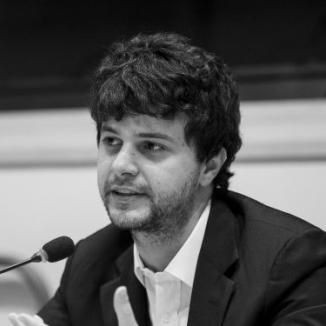Inclusive growth in the European Union
Why is inclusive growth important and how do the EU’s social problems differ from social problems in other parts of the world?
Speakers
Reinhilde Veugelers
Senior fellow
Jana Hainsworth
President, Social Platform,
Monica Brezzi
Head, Governance Indicators and Performance Evaluation Division, Directorate for Public Governance, OECD,
Bea Cantillon
Emeritus Professor, Department of Sociology, University of Antwerp
Stefaan Hermans
Head of Cabinet of Marianne Thyssen, EU Commissioner for Employment, Social Affairs, Skills and Labour Mobility,
Tim Murphy
Member of the Board, Mastercard Center for Inclusive Growth; General Counsel and Chief Franchise Officer, Mastercard,
Luca Visentini
General Secretary, European Trade Union Confederation
Brando Benifei
Member, European Parliament
(Online)
Barbara Kauffmann
Director for Employment and Social Governance, European Commission, DG EMPL
SUMMARY
See below for video and presentation.
Session 1
This first session of the event on Inclusive Growth was meant to explain the importance of inclusiveness for our society and how policy makers will have to tackle this issue at all geographical levels – regional, national, and European. The aim was to discuss the different aspects of inclusive growth and to assess why the case of Europe is specific when it comes to inclusiveness.
Inclusive growth is not only about macroeconomics and governance; it is also about values and human beings. What came out from the panel on “Inclusive growth: why it matters?” is the importance of rethinking our macroeconomic model in order to re-place human’s well-being as our crucial objective. We are facing an increasing fragmentation of our population, which is one of the main consequences of decades of neglect and priority to economic growth. The emergence of a lost generation, the erosion of social protection, the drop in productivity, and the decreasing number of job opportunities lead to less mobility, more exclusion, and lack of shared contribution and feed fear and populism. Finding a new trajectory will mean finding ways to deal with the digital revolution, to promote a more sustainable development, to use economy at the service of the people, and to adopt a more long-term view when it comes to think of new strategies. So what can be done? We do need fundamental reforms, but we also do need a global and shared contribution at each level. And it will go through re-launching public and private investment, reinforcing our social model, and boosting the internal demand.
After several questions and fruitful remarks from the audience, raising issues on how to enhance inclusive growth, compensate the losers from openness to trade, promote interaction in our society, and merge short-term responses to crisis with more long-term views of development, each of the panelists added few conclusion words to close the session. Luca Visentini mentioned that compensating losers means in fact supporting the idea of a larger welfare state, and that responding to humanitarian crisis is not only restricted to limit damages but should also be part of a long-term process that promotes sustainable growth. Tim Murphy was very brief and straight to the point: we need to think of a new trajectory that places people’s well-being at the center of any new policy. Jana Hainsworth added that rethinking the current macroeconomic environment should help to support investment. Finally, Stefaan Hermans emphasized the need to think of inclusiveness as a way to focus on people’s dignity and highlighted the importance of being more and more able to adapt, all together, to the new challenges we are facing.
In the end, all the panelists agreed on the need to find new strategies that will have to be adaptive, and solidarity-centered. We need to move toward a more inclusive, resilient, and supporting society. Learning from ours and other countries’ experiences will be then necessary.
Event notes by Justine Feliu, Research Assistant
Session 2
Monica Brezzi raised three points about inequality that apply to the city level but are relevant for national policies as well. Firstly, she noted that prosperity, as measured not only by income but also other well-being indicators, and by consequence exclusion are both geographically concentrated between cities. Secondly, income-based spatial segregation within the city is on the rise in Europe, a worrying development given the evidence that its impact on outcomes is persistent across generations. Thirdly, the transmission from demand for high-skilled workers, which is the case in cities, to creation of low-skilled jobs does not work automatically, but needs to be supported by policy action.
Dalia Marin focused on the effects of technological progress on the European labour market. She presented empirical evidence showing that in most European countries, the difference in earnings between university and high school graduates, or skill premium, has shrunk. According to Marin, this puts the skill-biased technological change hypothesis, the assertion that technological change creates ever higher demand for high-skilled labour in production, at odds with evidence. Instead, Marin suggested that technological change is capital-biased, with capital replacing skilled labour in production. Another possibility Marin pointed to is that the growth in the supply of higher education graduates in Europe has outpaced the demand implied by technological progress. Drawing a comparison with the US, where the skill premium has not shrunk, the share of higher education grew faster in Europe.
Zsolt Darvas also tackled the question of technical change and its impact on inequality. He too noted that in most countries, the skill premium has narrowed. Yet, tertiary education jobs have increased steadily over time and across countries, in spite of the financial crisis. Nonetheless, Darvas disagreed that developments in the supply of higher education can account for the puzzle; looking at the number of graduates in Europe and the US, rather than shares, he found no practical distinction. In fact, the unemployment rate among such graduates was higher in the US than in the EU, suggesting relatively higher supply in the US. Demand factors also fall short of explaining the widening inequality in earnings in the US. He concluded that factor beyond supply and demand may have driven that change, such as regulation and public policy.
Event notes by Konstanitnos Efstathiou, Research Assistant
Session 3
The third session was focused on the policy actions, instruments, opportunities and roles for different policy levels (namely the UE and Member States) to foster inclusive growth. Barbara Kauffmann explained that the European Commission is taking very seriously social situations for its policy proposals and reports: the three main targets within the framework of the Europe 2020 strategy are related to poverty, employment and education. The main tool to achieve such targets is the European semester. The role of defining the EU semester’s goals depends on each country’s situation and has to follow a discussion with all other Member States before issuing a proposal. Talking about national welfare systems, which work differently in different countries, three are the main recommendations: protection legislation should be more flexible; active labor markets policies should be reinforced, e.g. by focusing on skills; social dialogue should be enhanced.
Bea Cantillon explained how, although before the crisis there has been growth in employment, income and social investment, poverty rates broadly did not change. This is due to the fact that, even if welfare states worked harder, they also became less performant. This is well explained by her metaphor of simultaneously growing symbiosis and tensions. Two main reasons for this dichotomy have to be identified in the redundancy of low-skilled workers and in job polarization. Conversely, in order to cope with this situation, she fosters two proposals: increase social inclusion and the welfare state, either its volume or its progressivity (e.g. by subsidizing jobs or by increasing minimal income); go beyond ´targetology´ by using both outcome indicators and policy indicators to evaluate actions.
Brando Benifei challenged the EU2020 targets as too ambitious given the instruments at disposal. Since there is a large lack of trust towards EU institutions, setting unattainable targets may worsen the situation. The stress here is on flexibility: the Juncker plan should be open to rediscussion, for instance on the fiscal compact. One suggested solution regarding unemployment is the scheme proposed by Pier Carlo Padoan, Italian Minister of Finance. Similarly, EMU convergence is needed, given that the EU enlargement happened without first delivering on the consolidation of the monetary union, as well as a new Directive for fair conditions of all workers. As a final point, he stressed the importance of subsidiarity with this respect: EU needs to cooperate more closely with Member States.
André Sapir dwelled on the big picture summary, by explaining that two main developments have resulted in the lack of inclusive growth: an external development of technological changes, globalization and digitalization, which implies the need for modernization of national welfare states, and an internal development. The latter is in turn due to the enlargement of the EU, leading to a group of very heterogeneous countries, and to the – still incomplete – monetary union. To these, BK added also the ageing population. At the national level, AS underlines the strengths of the flex-security model, so far implemented by only few countries. At the EU level, he claims that today’s single market is incompatible with inclusive growth, calling for new instruments through budget use and higher harmonization between the Member States and the EU policy layers. As a final remark, Guntram Wolff added that the EU has a strong regulatory power, and that it should bet on this field, by setting standards and guidelines.
Event notes by Enrico Nano, Research Assistant
AUDIO AND VIDEO RECORDING
EVENT MATERIALS
We gratefully aknowledge the support financial support of the Mastercard Center for Inclusive Growth for this event.
















